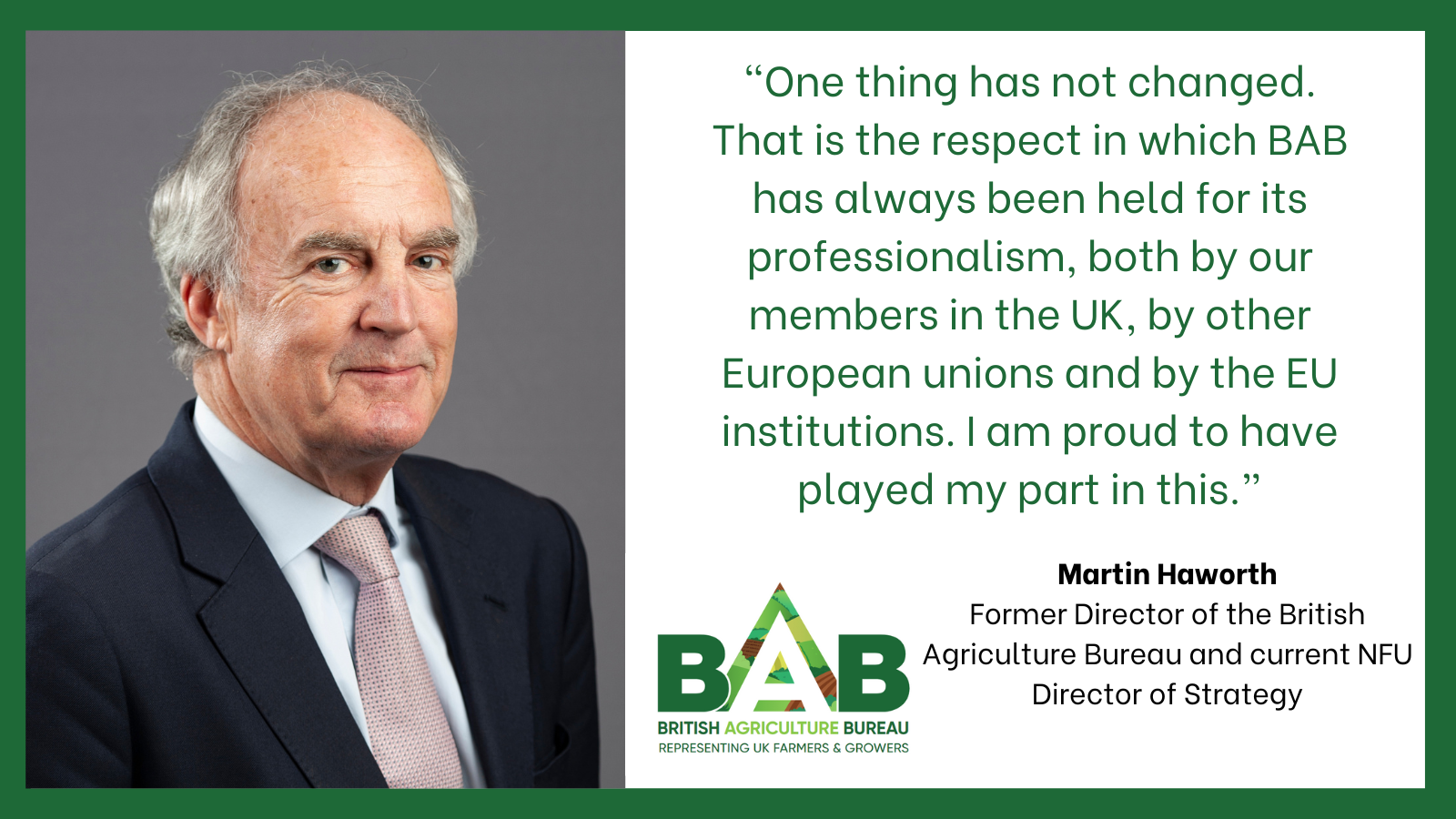My first encounter with BAB was in the 1980s; a few years after I joined the NFU I was made BAB Director; the 4th in a line which stretches to the present day. Originally the office had functioned as a kind of Embassy for the home farm unions but by the time I took over it had become the technical, policy orientated office it has remained to this day.
In those days BAB was situated in rue de la Science, a few blocks away from its current location, but then, as now, it occupied premises above the offices of COPA/COGECA. At that time the European Community had only 9 Member States but, paradoxically, meetings lasted much longer, often stretching over 2 days. This was particularly the case for the meeting known as the “Group of General Experts” which prepared for meetings of the Praesidium and comprised senior officials based in their own countries. Indeed, COPA looked somewhat askance at permanent Brussels offices like BAB; the line was that COPA was the presence at the heart of the European institutions and it was, indeed, the case that French and German Unions had no Brussels offices until relatively recently.
Meetings of the General Experts took place in a small windowless room with large bowls on the table which served as ash trays, which would be filled to the brim by the end of the day. Meetings were often far more acrimonious than today and frequently descended into detailed arguing of the wording of texts. Another stark difference from today was that the common language was French; drafts and proposals invariably came from the Commission in French and at that time it would have been impossible to work in BAB without fluency in that language.
Looking back over all the years of my involvement, it becomes clear that successive enlargements of the EU have profoundly changed the way COPA works. The large number of organisations that are now very distant from Brussels means that permanent national offices have become the norm and the original belief that COPA alone should be the permanent presence is now totally unthinkable. Bringing in a large number of new organisations, particularly from the East, has made English the undisputed common language. And with meetings now so large, long and detailed meetings about textual nuances are now out of the question.
One thing has not changed. That is the respect in which BAB has always been held for its professionalism, both by our members in the UK, by other European unions and by the EU institutions. I am proud to have played my part in this.
